DO I NEED ALCOHOL DETOX QUIZ
Table of Contents
According to the National Center for Drug Abuse Statistics, 6.7% of American adults that consume alcohol will develop an Alcohol Use Disorder. These disorders kill over 3 million people every year and often need professional help to recover from.
If someone struggles with alcoholism or another alcohol use disorder and wants to get clean, getting a medical alcohol detox can help them manage their alcohol withdrawal symptoms.
By learning more about medical detoxes from alcohol and other treatments for these disorders, it is easier for patients to get the care they need. Keep reading this article to learn more about the top signs that someone needs alcohol withdrawal treatment.
What Is a Professional Medical Alcohol Detox
Detox treatment is one of the first treatment steps patients must take on their path toward sobriety.
Before patients can begin a detox, they must undergo a physical exam by a medical professional. This will ensure that it is the right course of action for recovery. During this medical exam, a doctor will learn more about the patient’s addiction and will assess their current health.
Then, patients can begin the alcohol detox process. This detox is done under medical supervision to ensure that they are safe and protected as they deal with extreme withdrawal symptoms.
In some cases, the doctors will provide patients with medication to help ease some of these withdrawal symptoms. Getting a professional medical alcohol detox provides patients with their best chance of becoming sober.
The detox process will vary from patient to patient. It also depends on the substances they are addicted to and the severity of their addiction. The worst withdrawal symptoms will pass within a few days and then their body will completely detox within a few weeks.
When Is a Professional Detox Necessary
Although many people can benefit from a professional alcohol detox, it is not always necessary. Learning more about when a professional detox is necessary will ensure that people get the care that they need.
Typically, alcohol rehab is only necessary when people have had severe additions or are unable to detox on their own. If patients are dependent on alcohol, medical detox may be necessary. Attempting to detox on their own may lead to serious health complications, like heart palpitations.
Medical detoxes are also necessary if the patient is a danger to themself or others around them.
Common Symptoms of Alcohol Withdrawal
Next, it is important that people learn more about the common symptoms of alcohol withdrawal. This will make it easy for them to recognize these signs in their friends, loved ones, or themselves.
Alcohol withdrawal symptoms will typically vary in different people and will differ in severity, duration, and even how quickly they onset.
For example, some people with serious addictions may experience withdrawal symptoms within a few hours of their last drink. However, people typically go through alcohol withdrawals within six to 12 hours of their last drink.
Some of the most common alcohol withdrawal symptoms that occur include:
- Nausea and vomiting
- Shakiness
- Headaches
- Racing heart rate and restlessness
- Mood Swings
- Sweating
- Fatigue
People that are heavy drinkers may experience more severe symptoms, like high blood pressure, seizures, and disorientation.

Signs a Medical Alcohol Detox is Necessary
If someone has an alcohol use disorder, it can be difficult to determine whether or not a medical alcohol detox is necessary. There are a few signs that make it easy to determine whether they need medical help as they overcome their addiction.
Here are some of the top signs that patients need a medical alcohol detox.
Tried Detoxing Before
One of the most common signs that patients need the help of a medical professional for their alcohol detox is if they have attempted detoxing on their own before. Many people that recognize that they have a problem will eventually try to overcome it on their own.
However, as the withdrawal symptoms get severe, it is easy to give in to the temptation of drinking.
If someone has tried detoxing many times before and has failed each time, they may only be able to achieve sobriety with the help of a professional.
A Medical Professional Recommends It
Another easy way for someone to recognize that they need a professional medical detox is if it is recommended by a medical professional. Often, it is recommended that they get a professional evaluation by a medical specialist before getting treatment.
In these cases, they can determine if a medical detox is necessary for their safety. If they have an alcohol use disorder, a medical professional will almost always recommend professional detox.
They Struggle With Other Medical Issues
When someone gets a medical evaluation, it may also identify underlying medical issues. In these cases, a self-detox may not be safe.
For example, if someone is already dealing with health issues like an irregular heart rate or seizures, the detox process can worsen these symptoms.
In these cases, it is best to do a detox with medical supervision. This way, a doctor can quickly respond if something goes wrong. Plus, doctors can provide medication and other resources to help ease the withdrawal symptoms.
No Social Network
It is also important that someone without a social network get medical help while detoxing. This is a key contributor when it comes to addiction recovery. For example, people who detox but spend time with people using drugs or alcohol may find it easier to relapse.
Social support also makes it easier to achieve lifelong sobriety. This is why so many programs utilize peer support networks, group therapy, and other support groups to provide continued care after detoxing.
If someone doesn’t have the social support necessary to get through their detox, a medical professional can provide the support for them.
Extended Periods of Heavy Drinking
If a patient has gone through extended periods of heavy drinking, it is also recommended that they get a medical detox. This is because heavy drinking can lead to worse withdrawal symptoms!
Plus, the longer they have had a drinking problem, the harder it can be to detox. It may take them more time to become sober, so having medical help will ensure that they get there as soon as possible.
They Hurt Themself or Others
Some people are not safe to be around when they are drinking or when they are going through alcohol withdrawals. In these cases, it is essential that they get help from a medical professional as they detox from alcohol.
Otherwise, they may end up hurting themselves or others.
Often, people going through withdrawal symptoms experience mental health issues, like depression. If they are in this dark place, they may not be able to think clearly or take care of themselves. Having a professional help them in this situation will ensure that they are safe as they detox.
It’s Affecting Relationships
Another reason why many people choose to get help with their alcohol recovery is that their alcohol use begins to affect their relationships. When people have serious drinking habits, it may result in them pushing family or friends away.
It also often makes them unavailable and they will begin to neglect their responsibilities and miss important events.
In these cases, they may find that their loved ones have expressed concerns about their drinking habits. To improve their relationships, they can get a medical detox from alcohol to overcome this drinking habit.
They Are Dependent on Alcohol
Finally, patients will need to get professional medical help for their alcohol detox if they are physically dependent on alcohol. Often, this looks like them being unable to start the day without a drink.
Many people who are physically dependent on alcohol will also feel physically unwell without drinking alcohol and will have physical manifestations of their dependency, like tremors or heart palpitations.
If someone is unable to make it through a single day without alcohol, it is an easy sign that they need professional help to overcome their alcohol use disorder.
Need Help With Alcohol Withdrawal Symptoms?
If someone is dealing with these alcohol withdrawal symptoms, it may be necessary for them to get a professional medical alcohol detox. Recognizing each of these signs in can help people find the treatment they need to recover from their alcohol use disorder!
If a patient is looking for alcohol treatment facilities in Orange County, Lift Off Recovery can help. We offer inpatient drug and alcohol rehab treatment, detox treatment, and outpatient rehab.
Contact our team to learn more about our detox program and to schedule a consultation for professional medical alcohol detox.
References
Alcohol abuse statistics [2022]: National + state data. NCDAS. (2022, April 6). Retrieved April 28, 2022, from https://drugabusestatistics.org/alcohol-abuse-statistics/
Kelly, S. M., O’Grady, K. E., Schwartz, R. P., Peterson, J. A., Wilson, M. E., & Brown, B. S. (2010, January). The relationship of social support to treatment entry and engagement: The Community Assessment Inventory. Substance abuse. Retrieved April 28, 2022, from https://www.ncbi.nlm.nih.gov/pmc/
articles/PMC2856126/
Sharp, A. (2022, April 4). Alcohol withdrawal: Symptoms, Timeline & Detox process. American Addiction Centers. Retrieved April 28, 2022, from https://americanaddictioncenters.org/
withdrawal-timelines-treatments/alcohol
FILL THE FORM BELOW
The Journey Begins
CONTACT LIFT OFF RECOVERY TODAY FOR DETOX AND ADDICTION TREATMENT IN ORANGE COUNTY, CALIFORNIA!
Take the first step and contact us today. Our admissions specialists are ready to help you get the care you need. We can help you figure out how to pay for treatment and what level of care is right for you.
- Insurance Accepted
- Friendly Staff
- Years of Experience
